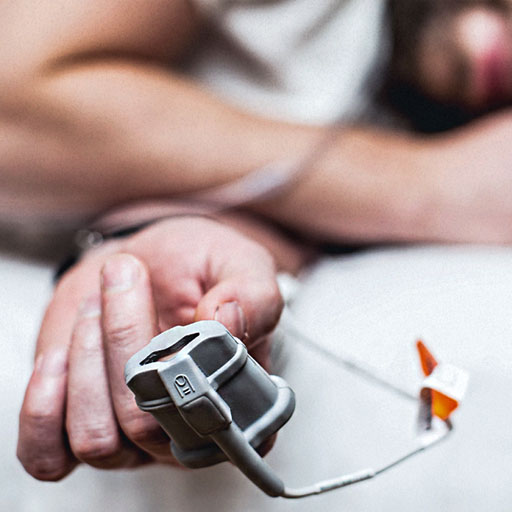
A sleep study test, also known as a polysomnography, is a diagnostic test that measures various physiological parameters during sleep. The test is performed in a specialized sleep laboratory or in some cases, can be done at home using portable equipment.
During a sleep study test, a patient is connected to several sensors that monitor various physiological parameters including brain waves, eye movement, muscle activity, heart rate, and breathing patterns. The test records data while the patient sleeps, usually over the course of one night.
Our Process

What Conditions Sleep Test can Diangose
- Sleep apnea: a condition where a person stops breathing repeatedly during sleep.
- Insomnia: a condition where a person has difficulty falling asleep or staying asleep.
- Narcolepsy: a condition characterized by sudden and uncontrollable bouts of sleep.
- Restless legs syndrome: a condition that causes an uncontrollable urge to move the legs while trying to sleep.
- Parasomnias: a group of sleep disorders that involve abnormal behavior during sleep, such as sleepwalking or talking.
The results of the sleep study test can help healthcare providers diagnose and treat sleep disorders. Treatment options may include lifestyle changes, medication, and the use of continuous positive airway pressure (CPAP) machines for sleep apnea.
Get hassle fre sleep study test at your door steps
Obtaining a hassle-free sleep study test in Ghaziabad, Noida, and Greater Noida has never been easier. Our dedicated facilities prioritize your comfort and convenience, offering streamlined processes and expert care every step of the way. With strategically located centers, accessibility is assured, minimizing travel time and inconvenience. Our team of experienced professionals ensures accurate and comprehensive assessments, providing valuable insights into your sleep patterns and overall health. Say goodbye to sleepless nights worrying about your sleep health – book your test today and take the first step towards a restful and rejuvenating night's sleep.
Note: To know more please check Frequently Asked Questions (FAQ)
